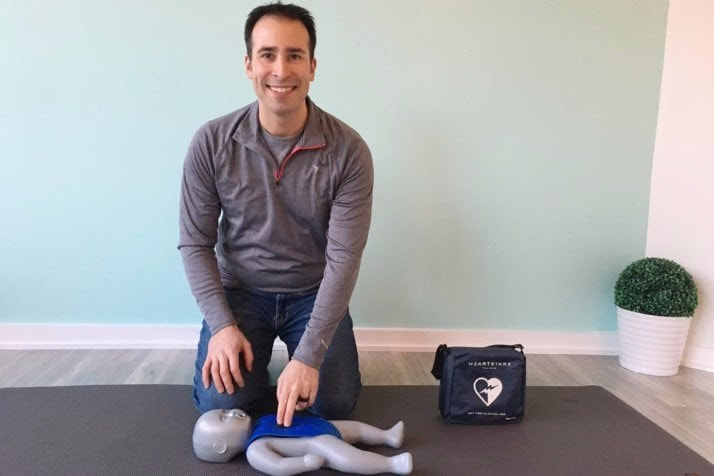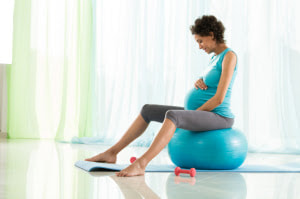|
Early sunsets, getting cozy with baby, slow Sundays, and sipping tea on your yoga mat - hello beautiful fall! Check out all of the exciting {and free} things we have happening at the studio this season!
Guest written by Megan Marsiglio, creator of The Omm Life Ladies, how well do you know your pelvic floor? A TABOO TOPIC Pelvic floor health is a topic that’s seemingly just as taboo to talk about as any other ‘below-the-belt’ issues. Am I right? How openly would you talk about your dysfunctional pelvic floor muscles with your friends and family? It’s a topic just as uncomfortable to talk about as having problematic digestive issues. Just like digestive issues, us humans – more commonly females – experience issues with the muscles in our pelvic floor region at some point in time. Maybe you’ve peed a little when you sneezed or coughed, or you have a hard time completely “emptying” when you pee…or maybe you suffer from pain in your low back and pelvic region, or even discomfort during sex. Whether you’ve never had a baby (like me), are currently pregnant, postpartum, a middle-aged mother, or a lady with changing hormones, the health of your pelvic floor muscles is just as important as the health of your digestive system. A healthy pelvic floor is the cornerstone for keeping our pelvic organs in their correct positions (including the uterus, vagina and bowel) and preventing pelvic organs from prolapsing. It contributes to the health of your elimination muscles (bladder and bowel control), your uterus and digestive tract…and it helps with a healthy sexual function. PELVIC FLOOR PHYSIOTHERAPY A few years ago I was working at a healthcare PR agency and one of our projects was working on a patient advisory board for overactive bladder (OAB). It was the first time I had ever heard of OAB and the first time I learned that there were such a thing as pelvic floor physiotherapists (PFP). A physiotherapist for your pelvic floor? Fast forward three years to two weeks ago where I had my first pelvic floor physiotherapist appointment at Toronto Yoga Mamas, all out of curiosity. I’m the curious type when it comes to my body. I like understanding the ins and outs (literally) of my body and I love learning ways I can improve my wellbeing. Although I didn’t think I had any real issues going down in my pelvic floor, I was curious to know what exactly a PFP did and what an appointment entailed. MY APPOINTMENT My appointment was with Lamiya, Pelvic Floor Physiotherapist at Toronto Yoga Mamas, and she began my appointment by discussing my overall health with me and any concerns I may be having. She went through a list of common pelvic floor issues women (and men) often have, why they happen and how they can be solved. She then explained the anatomy of the pelvic floor…I had no clue it was so complex! I don’t think we ever learned about this in health class! I then did a couple of exercises, like touching my toes, arching backwards and pushing my hips right and left while she observed the way my pelvis bent (apparently it didn’t move so well). Next was examination time – an internal examination – which wasn’t mandatory but recommended to further understand how strong the muscles are. WHAT TO EXPECT Before the physical examination began, Lamiya explained the whole process to me. She explained how the examination worked, what muscles she was feeling for, what a strong, healthy muscle should feel like and let me know that if I was uncomfortable at anytime to let her know. As I lay on the table listening to her, I kept associating the next step with a pap exam…and thank goodness it wasn’t anything close to the discomfort of a cold, tense pap. She left the room while I undressed and covered myself with a sheet. She then returned and slipped on a double layer of medical-grade gloves, applied lubricant and assessing the muscles with internal palpation of the four different muscle groups. She took me through different breathing exercises to see how well the muscles contracted and relaxed and thoroughly explained the process as the exam went on. It wasn’t uncomfortable at all, just extremely informative and made me 10x more aware of my body. After the internal exam, she provided me with a few exercises and breathing techniques to practice at home and asked if I had any questions. AFTER THOUGHTS I left my appointment questioning why pelvic floor physiotherapy isn’t a mandatory appointment every few years, even before conceiving…or even for ladies who don’t choose to have children. Our pelvic floors consist of a group of muscles that keep everything working correctly. Why should we be waiting until there is a problem before we have to get them checked out? Unfortunately, this is commonly the case for most. We strengthen and condition the rest of our bodies to prevent injury and to keep strong, but we totally take our pelvic floor muscles for granted until we realize they’ve weakened. For females, I think pelvic floor health should be learned and talked about way before childbirth. I also left feeling very educated. Did you know that…
So ladies (and men), whatever issue you may be having in your pelvic region…don’t be embarrassed, you aren’t alone. Talk about it, seek help and get examined by a pelvic floor physiotherapist….and if you’re in Toronto, book an appointment at Toronto Yoga Mamas, you won’t regret it! Megan is the writer and creator of The Omm Life A space dedicated to helping you live a balanced, stress-free life for mind, body and spirit. For articles like this and more, check out The Omm Life  Prenatal Nutrition Workshop Only $24 / person. Comes with a free 7 Day Meal plan for mamas. What should I eat when I am pregnant? What shouldn't I eat? Should I be supplementing? What's best for baby? Join us for A 75 minute workshop for expecting mamas. Dr. Shannon, our Naturopathic Doctor, will lead an information-rich workshop where you will learn what to eat when you're expecting. PLUS you will walk away from this workshop with a 7 day prenatal nutrition meal plan that you can begin using immediately. Broken down by trimester, Dr. Shannon will lead you through a discussion on why your food intake is so important while pregnant. She will discuss clean and healthy eating to not only support baby's health and development, but your health and ability to thrive during your pregnancy. 1ST Trimester: foods for baby's brain development, foods to help manage nausea 2ND Trimester: foods to prevent iron deficiency, to maintain energy, to prevent gestational diabetes 3RD Trimester: foods for energy, to prevent gastrointestinal issues Two Free Recipes For Mamas-To-BeIngredients
Ingredients
MEATBALLS
Instructions
|
Categories
All
Archives
July 2024
|
-
Wellness Services
- Wellness Concierge
- Abdominal Massage
- Acupuncture
- Cosmetic Acupuncture
- Cesarean Scar Release Therapy
- Chinese Herbal Medicine
- Chiropractic Care
- Counselling >
- Craniosacral Therapy
- Online EFT Tapping
- Fascial Stretch Therapy
- Home Visits
- Online Holistic Nutrition
- Gua Sha Glow Facial
- Introduction to Solids
- Infant & Kids Massage
- Infant Sleep Consulting
- Kinesiology
- Kinesio Taping
- Lactation Consulting
- Light Therapy >
- Lymphatic Drainage Massage
- Massage Therapy
- Naturopathic Medicine
- Osteopathy
- Pelvic Floor Physiotherapy
- Physiotherapy
- Pediatric Physiotherapy
- Online Speech Language Therapy
- Ultrasound For Blocked Ducts
- Vitamin Injections
- FITNESS
- Doula Care
- WORKSHOPS & EVENTS
- Free Events
- Professional Trainings
- Blog
- SHOP ONLINE
Services |
ABOUT US |
|
A Note About yoga Mamas' Cancellation Policies
Please note that we do not offer refunds. Each event/course/training/wellness appt has it's own specific cancellation policy which is listed on each registration page. Please take the time to read these in full prior to registering. Each event/appointment that we run is in partnership with a practitioner who is focusing their independent career in prenatal and postpartum health. This is their beautiful livelihood. This is why we have these policies in place. Thank you very much for your understanding. Jamie Kalynuik, Founder of Yoga Mamas
[email protected] | 416-406-0116 | 1402 Queen St E Suite D. Toronto M4L 1C9
-
Wellness Services
- Wellness Concierge
- Abdominal Massage
- Acupuncture
- Cosmetic Acupuncture
- Cesarean Scar Release Therapy
- Chinese Herbal Medicine
- Chiropractic Care
- Counselling >
- Craniosacral Therapy
- Online EFT Tapping
- Fascial Stretch Therapy
- Home Visits
- Online Holistic Nutrition
- Gua Sha Glow Facial
- Introduction to Solids
- Infant & Kids Massage
- Infant Sleep Consulting
- Kinesiology
- Kinesio Taping
- Lactation Consulting
- Light Therapy >
- Lymphatic Drainage Massage
- Massage Therapy
- Naturopathic Medicine
- Osteopathy
- Pelvic Floor Physiotherapy
- Physiotherapy
- Pediatric Physiotherapy
- Online Speech Language Therapy
- Ultrasound For Blocked Ducts
- Vitamin Injections
- FITNESS
- Doula Care
- WORKSHOPS & EVENTS
- Free Events
- Professional Trainings
- Blog
- SHOP ONLINE








































